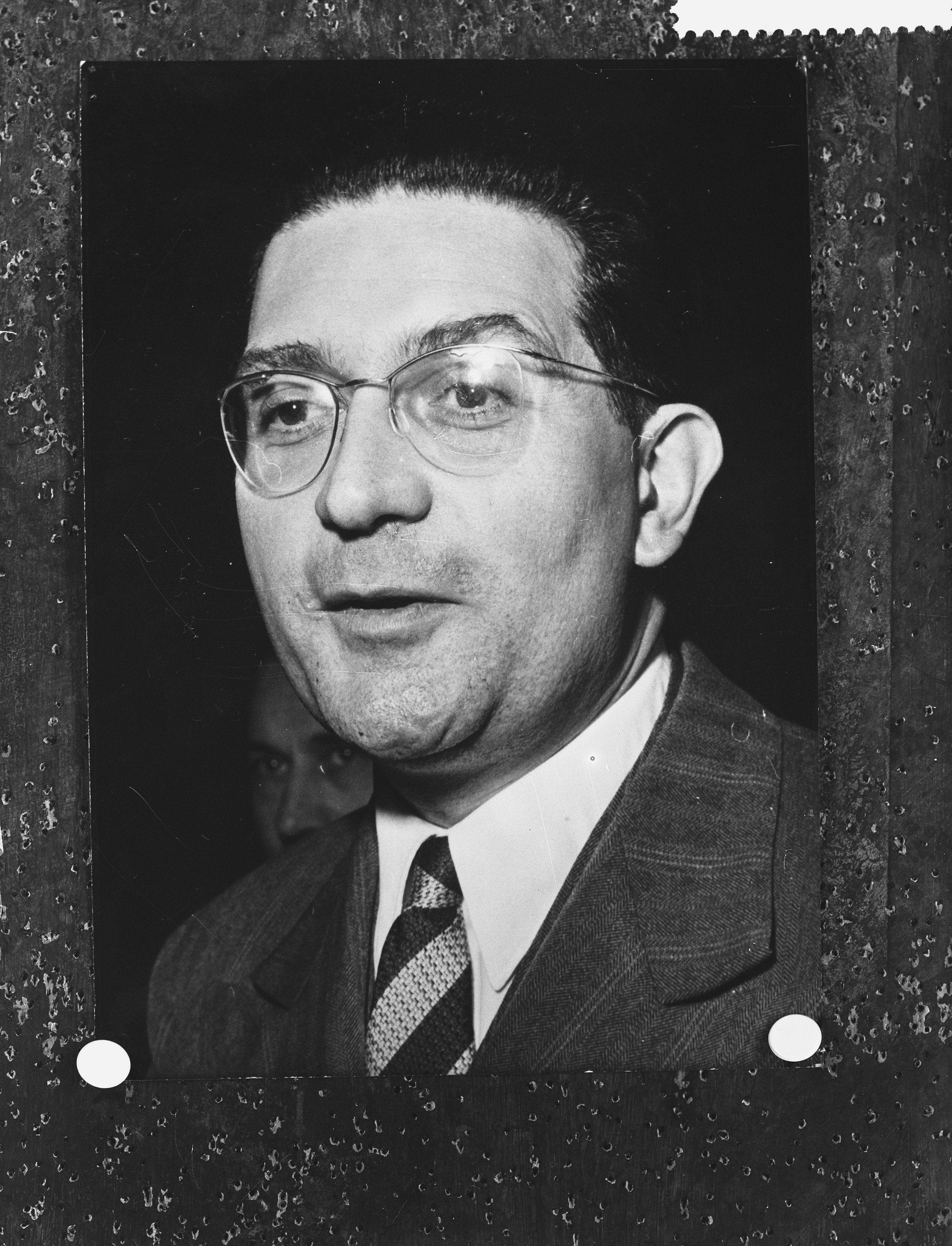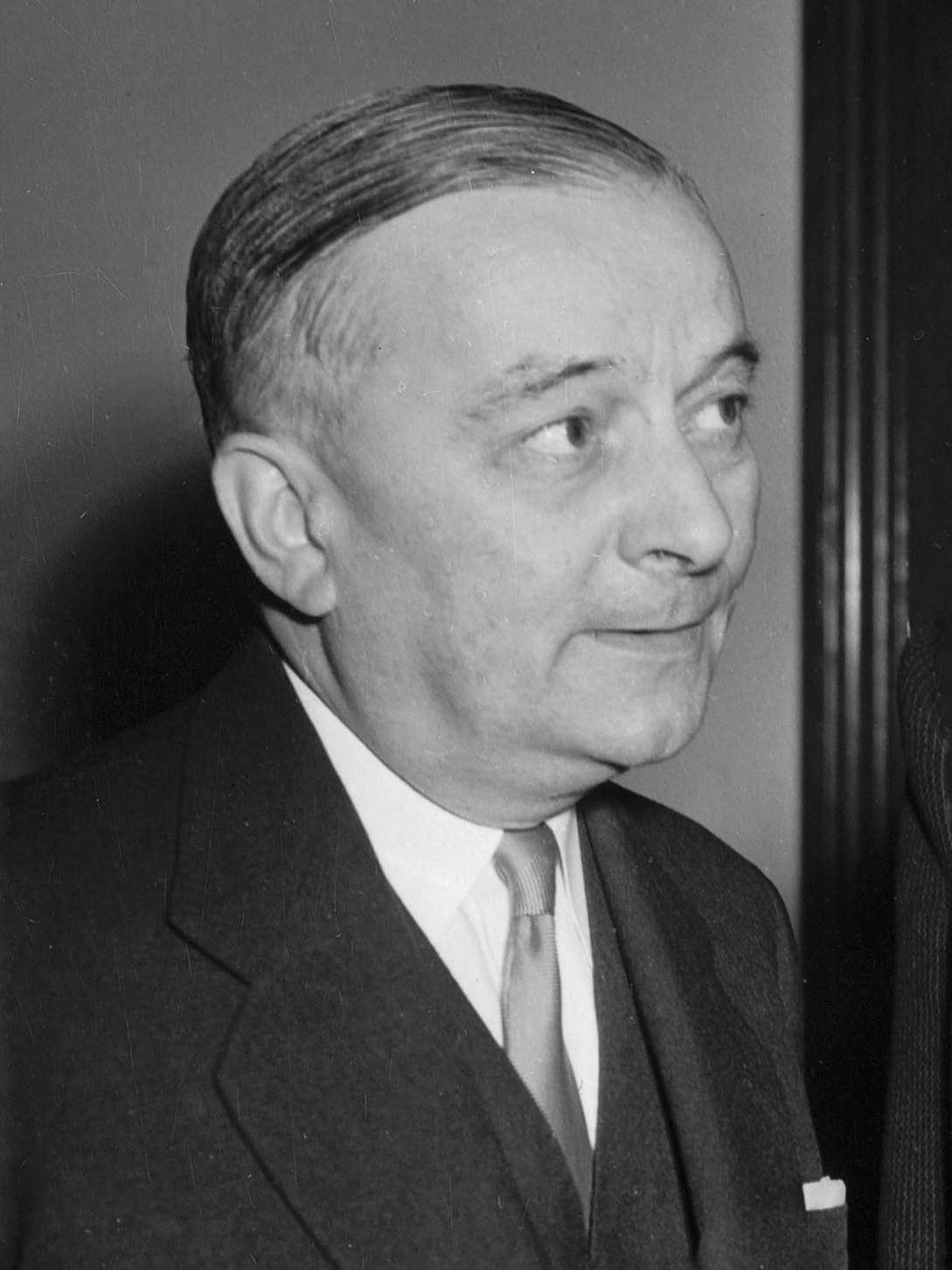|
Chadian Democratic Union
The Chadian Democratic Union (french: Union Démocratique Tchadienne, UDT) was a political party in Chad. History The party was established in Fort Lamy in 1945. Following the General Council elections, members of the Chadian-French Progressive List (which had won 7 seats), Republican Union (four seats) and Franco-Chadian Progressive Group (unrepresented) formed the new party, which was also joined by two of the three elected independents. Its founders were mainly by African traditional leaders including Gontchomé Sahoulba, with the party representing French commercial interests and a bloc of traditional leaders composed primarily of Muslim and Ouaddaïan nobility. It was linked with the Rally of the French People (RPF), a Gaullist conservative political party representing the Europeans in Chad, and also sided with the other political parties founded in Chad by European expatriates. Members of the UDT party at first won easily local elections; it won both seats in the June 1 ... [...More Info...] [...Related Items...] OR: [Wikipedia] [Google] [Baidu] |
Chad
Chad (; ar, تشاد , ; french: Tchad, ), officially the Republic of Chad, '; ) is a landlocked country at the crossroads of North and Central Africa. It is bordered by Libya to the north, Sudan to the east, the Central African Republic to the south, Cameroon to the southwest, Nigeria to the southwest (at Lake Chad), and Niger to the west. Chad has a population of 16 million, of which 1.6 million live in the capital and largest city of N'Djamena. Chad has several regions: a desert zone in the north, an arid Sahelian belt in the centre and a more fertile Sudanian Savanna zone in the south. Lake Chad, after which the country is named, is the second-largest wetland in Africa. Chad's official languages are Arabic and French. It is home to over 200 different ethnic and linguistic groups. Islam (55.1%) and Christianity (41.1%) are the main religions practiced in Chad. Beginning in the 7th millennium BC, human populations moved into the Chadian basin in great numbe ... [...More Info...] [...Related Items...] OR: [Wikipedia] [Google] [Baidu] |
French Legislative Election, June 1946 (Chad–Ubangi-Shari)
Legislative elections were held in France on 2 June 1946 to elect the second post-war Constituent Assembly designated to prepare a new constitution. The ballot system used was proportional representation. After the liberation of France in the Second World War, three parties dominated the political scene due to their participation in the Resistance to the German occupation: the French Communist Party (PCF), the French Section of the Workers' International (SFIO, socialist party) and the Popular Republican Movement (MRP) Christian democratic party. They formed a provisional government led by General Charles de Gaulle. General de Gaulle advocated a strong presidential government. He felt that the "regime of the parties" under the French Third Republic's system of parliamentary government (characterised by its political instability and ever-changing coalitions) was a cause of the 1940 collapse. However, the three main parties considered parliamentary democracy to be inseparable ... [...More Info...] [...Related Items...] OR: [Wikipedia] [Google] [Baidu] |
Political Parties Established In 1945
Politics (from , ) is the set of activities that are associated with making decisions in groups, or other forms of power relations among individuals, such as the distribution of resources or status. The branch of social science that studies politics and government is referred to as political science. It may be used positively in the context of a "political solution" which is compromising and nonviolent, or descriptively as "the art or science of government", but also often carries a negative connotation.. The concept has been defined in various ways, and different approaches have fundamentally differing views on whether it should be used extensively or limitedly, empirically or normatively, and on whether conflict or co-operation is more essential to it. A variety of methods are deployed in politics, which include promoting one's own political views among people, negotiation with other political subjects, making laws, and exercising internal and external force, including war ... [...More Info...] [...Related Items...] OR: [Wikipedia] [Google] [Baidu] |
1945 Establishments In Chad
1945 marked the end of World War II and the fall of Nazi Germany and the Empire of Japan. It is also the only year in which Nuclear weapon, nuclear weapons Atomic bombings of Hiroshima and Nagasaki, have been used in combat. Events Below, the events of World War II have the "WWII" prefix. January * January 1 – WWII: ** Nazi Germany, Germany begins Operation Bodenplatte, an attempt by the ''Luftwaffe'' to cripple Allies of World War II, Allied air forces in the Low Countries. ** Chenogne massacre: German prisoners are allegedly killed by American forces near the village of Chenogne, Belgium. * January 6 – WWII: A German offensive recaptures Esztergom, Kingdom of Hungary (1920–1946), Hungary from the Russians. * January 12 – WWII: The Soviet Union begins the Vistula–Oder Offensive in Eastern Europe, against the German Army (Wehrmacht), German Army. * January 13 – WWII: The Soviet Union begins the East Prussian Offensive, to eliminate German forces in East Pruss ... [...More Info...] [...Related Items...] OR: [Wikipedia] [Google] [Baidu] |
Defunct Political Parties In Chad
{{Disambiguation ...
Defunct (no longer in use or active) may refer to: * ''Defunct'' (video game), 2014 * Zombie process or defunct process, in Unix-like operating systems See also * * :Former entities * End-of-life product * Obsolescence Obsolescence is the state of being which occurs when an object, service, or practice is no longer maintained or required even though it may still be in good working order. It usually happens when something that is more efficient or less risky r ... [...More Info...] [...Related Items...] OR: [Wikipedia] [Google] [Baidu] |
1957 Chadian Territorial Assembly Election
Territorial Assembly elections were held in French Chad on 31 March 1957. The result was a victory for the Entente alliance, led by the Chadian Progressive Party, which won 57 of the 65 seats. Campaign The Entente and Chadian Social Action ran a single list in Ouaddaï, competing against the African Socialist Movement. Results The Entente won 57 seats, of which the Chadian Progressive Party took 32 seats, the Grouping of Rural and Independent Chadians nine, the Democratic and Socialist Union of the Resistance seven, Radicals and Radical Socialists seven, and the Independent Socialist Party of Chad one. Aftermath Following the elections, the result in Chari-Baguirmi was annulled, with a by-election held on 1 June 1958. The 7-seat constituency had been won by the Entente, but the by-election saw a victory for the Chadian Socialist Union. References {{Chadian elections Chad Territorial A territory is an area of land, sea, or space, particularly belonging or conn ... [...More Info...] [...Related Items...] OR: [Wikipedia] [Google] [Baidu] |
Chadian Progressive Party
The Chadian Progressive Party (french: Parti Progressiste Tchadien, PPT), known as the National Movement for the Cultural and Social Revolution (french: Mouvement National pour la Révolution Culturelle et Sociale, MNRCS) for the last two years of its existence, was the first African political party in Chad. It was a regional branch of the African Democratic Rally (RDA). History The party was founded in February 1947,Chad: Defunct parties EISA by Gabriel Lisette, who had been elected to the French National Assembly in |
Chadian Social Action
Chadian Social Action (, AST) was a political party in Chad. History The party was founded in 1953.Chad: Defunct parties EISA An offshoot of the Chadian Democratic Union (UDT), it also represented French commercial interest and Muslim and African traditional chiefs, and its leaders included Gontchomé Sahoulba, Ahmed Koulamallah, Mohamed Bechir-Sow and Ahmed Kotoko. The AST quickly superseded the UDT in importance, gaining support principally in Logone, Mayo-Kébbi Prefecture, Mayo-Kébbi, Ouaddaï Prefecture, Ouaddaï, Batha Prefecture, Batha and Chari-Baguirmi Prefecture, Chari-Baguirmi. At the same time the Chadian Progressive Party (PPT) started gaining support in southern Chad, helped by the extension of the suffrage in 1956. In the French legislative election, 1956 (Chad–Ubangi-Shari), 1956 F ... [...More Info...] [...Related Items...] OR: [Wikipedia] [Google] [Baidu] |
1952 Chadian Territorial Assembly Election
Territorial Assembly elections were held in Chad on 30 March 1952. The result was a victory for Gaullist parties,Edward Mortimer (1969) ''France and the Africans 1944–1960: A political history'', Faber, p175 with the Rally of the French People winning all 15 seats in the First College and the Chadian Democratic Union winning 24 of the 30 seats in the Second College. Electoral system The 45-seat Territorial Assembly had 15 seats elected by the first college in two constituencies, and 30 seats elected by the second college in ten constituencies.Dolf Sternberger Dolf Sternberger (originally ''Adolf Sternberger''; 28 July 1907 in Wiesbaden – 27 July 1989 in Frankfurt/Main) was a German German(s) may refer to: * Germany (of or related to) **Germania (historical use) * Germans, citizens of Germany, ..., Bernhard Vogel, Dieter Nohlen & Klaus Landfried (1978) ''Die Wahl der Parlamente: Band II: Afrika, Erster Halbband'', pp2219–2220 Results References {{Chadian el ... [...More Info...] [...Related Items...] OR: [Wikipedia] [Google] [Baidu] |
French Legislative Election, 1951 (Chad–Ubangi-Shari)
Legislative elections were held in France on 17 June 1951 to elect the second National Assembly of the Fourth Republic. After the Second World War, the three parties which took a major part in the French Resistance to the German occupation dominated the political scene and government: the French Communist Party (PCF), the French Section of the Workers' International (SFIO, socialist party) and the Christian democratic Popular Republican Movement (MRP). The forces associated with the Third Republic and the 1940 disaster (the Radical Party and the classical Right) were considered as archaic and were the losers of the post-war elections. Nevertheless, after the proclamation of the Fourth Republic, the 1947 strikes and the beginning of the Cold War, the Three-parties alliance split. In spring 1947, the Communist ministers were dismissed. At the same time, Charles de Gaulle, symbol of the Resistance, founded his Rally of the French People (RPF) which campaigned for constitutio ... [...More Info...] [...Related Items...] OR: [Wikipedia] [Google] [Baidu] |
French Legislative Election, November 1946 (Chad–Ubangi-Shari)
Legislative elections were held in France on 10 November 1946 to elect the first National Assembly of the Fourth Republic. The electoral system used was proportional representation. After the rejection of a first constitutional draft ( 5 May 1946 referendum), a new provisional National Assembly was elected to elaborate a second text. The Christian democrat leader Georges Bidault (Popular Republican Movement, MRP) led a government which included socialists ( French Section of the Workers' International, SFIO) and Communists (French Communist Party, PCF). This Three-parties alliance proposed the establishment of a parliamentary system. Advocating a presidential government, General Charles de Gaulle campaigned for a "No" vote. He warned against the "regime of the parties" which was, according to him, responsible for the 1940 collapse. His followers founded the Gaullist Union. The Rally of the Republican Lefts (an electoral alliance dominated by the Radical Party) and the clas ... [...More Info...] [...Related Items...] OR: [Wikipedia] [Google] [Baidu] |
Gaullism
Gaullism (french: link=no, Gaullisme) is a French political stance based on the thought and action of World War II French Resistance leader Charles de Gaulle, who would become the founding President of the Fifth French Republic. De Gaulle withdrew French forces from the NATO Command structure, forced the removal of Allied bases from France, and initiated France's own independent nuclear deterrent programme. His actions were predicated on the view that France would not be subordinate to other nations. According to Serge Berstein, Gaullism is "neither a doctrine nor a political ideology" and cannot be considered either left or right. Rather, "considering its historical progression, it is a pragmatic exercise of power that is neither free from contradictions nor of concessions to momentary necessity, even if the imperious word of the general gives to the practice of Gaullism the allure of a programme that seems profound and fully realised". Gaullism is "a peculiarly French phenome ... [...More Info...] [...Related Items...] OR: [Wikipedia] [Google] [Baidu] |





